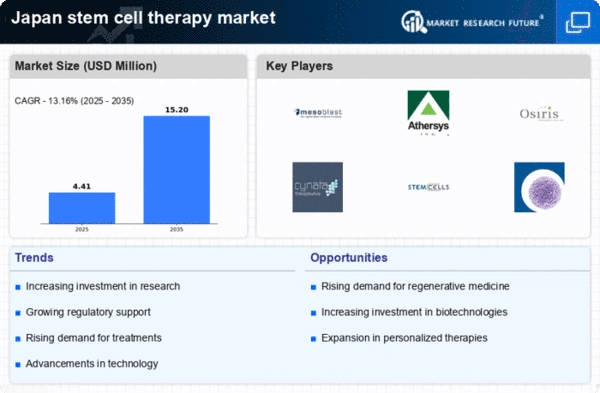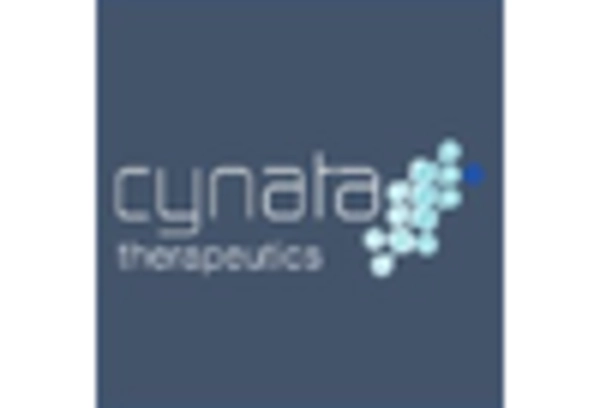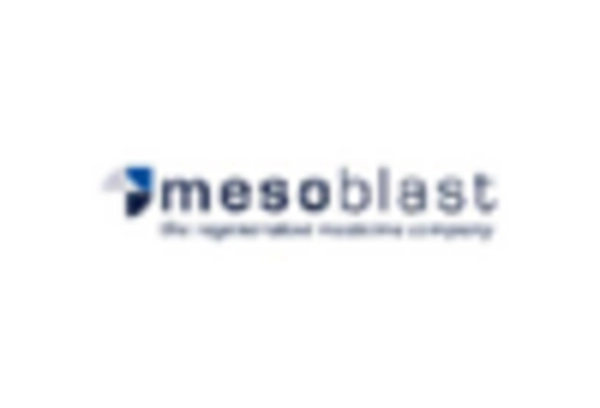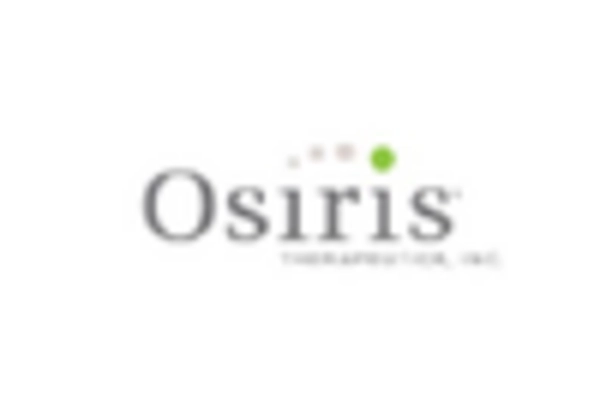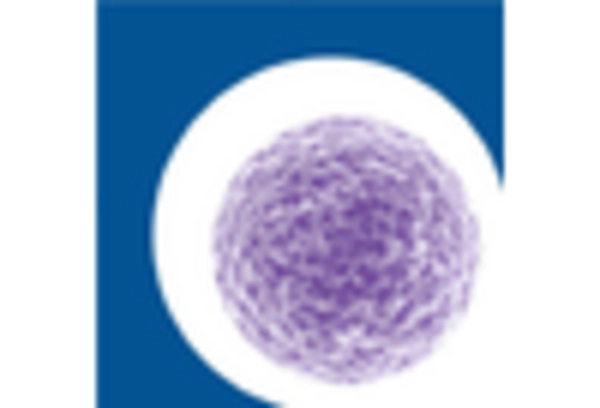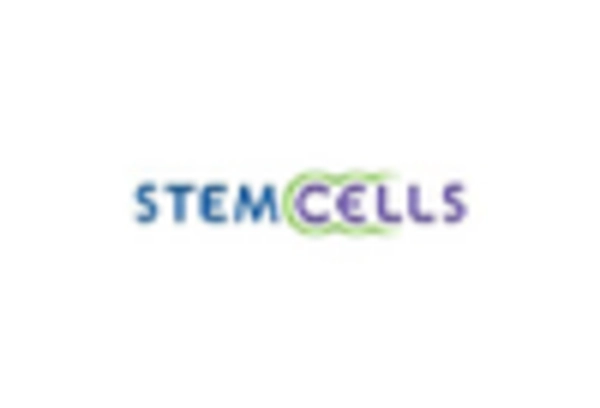Collaborative Research Efforts
Collaborative research efforts between academic institutions, healthcare providers, and private companies are emerging as a key driver for the stem cell-therapy market. In Japan, partnerships are being formed to leverage expertise and resources in the development of innovative therapies. These collaborations facilitate knowledge sharing and accelerate the translation of research findings into clinical applications. For instance, joint ventures between universities and biotech firms are enabling the rapid advancement of stem cell technologies. Such partnerships not only enhance the quality of research but also increase the likelihood of successful product development. As these collaborative initiatives continue to grow, they are expected to significantly impact the stem cell-therapy market by fostering innovation and expediting the availability of new treatment options for patients.
Government Initiatives and Funding
Government initiatives aimed at promoting regenerative medicine are significantly influencing the stem cell-therapy market. In Japan, the government has established various funding programs and regulatory frameworks to support research and development in this field. The Ministry of Health, Labour and Welfare has allocated substantial resources to encourage innovation in stem cell therapies, which is expected to enhance the overall market landscape. For instance, the government has introduced fast-track approval processes for promising therapies, thereby reducing the time to market. This proactive approach not only fosters a conducive environment for research but also attracts private investments, further stimulating market growth. As a result, the stem cell-therapy market is likely to benefit from increased funding and support, facilitating the development of novel therapies and expanding treatment options for patients.
Rising Prevalence of Chronic Diseases
The increasing incidence of chronic diseases in Japan is a pivotal driver for the stem cell-therapy market. Conditions such as diabetes, cardiovascular diseases, and neurodegenerative disorders are becoming more prevalent, necessitating innovative treatment options. According to recent health statistics, chronic diseases account for approximately 60% of all deaths in Japan, highlighting the urgent need for effective therapies. Stem cell therapies offer potential solutions for regenerating damaged tissues and organs, thus addressing the underlying causes of these diseases. The growing patient population seeking advanced treatment options is likely to propel the demand for stem cell therapies, thereby fostering market growth. As healthcare providers and researchers focus on developing targeted therapies, the stem cell-therapy market is expected to expand significantly in response to this rising health challenge.
Technological Advancements in Cell Therapy
Technological innovations in cell therapy are transforming the landscape of the stem cell-therapy market. Advances in gene editing, such as CRISPR technology, and improvements in cell culture techniques are enhancing the efficacy and safety of stem cell treatments. In Japan, research institutions and biotech companies are increasingly investing in these technologies, which could lead to breakthroughs in personalized medicine. The integration of artificial intelligence in research and development processes is also streamlining the identification of suitable stem cell candidates for various therapies. As these technologies mature, they are likely to improve treatment outcomes and reduce costs, making stem cell therapies more accessible to patients. Consequently, the stem cell-therapy market is poised for growth as these advancements continue to emerge and gain traction within the healthcare system.
Growing Awareness and Acceptance of Stem Cell Therapies
The rising awareness and acceptance of stem cell therapies among healthcare professionals and patients are driving the growth of the stem cell-therapy market. Educational campaigns and outreach programs have been instrumental in informing the public about the potential benefits of these therapies. As more patients seek alternative treatment options for chronic and degenerative diseases, the demand for stem cell therapies is expected to rise. Additionally, endorsements from medical professionals and successful case studies are contributing to a more favorable perception of these treatments. In Japan, the increasing number of clinical trials and positive outcomes reported in the media are likely to enhance public confidence in stem cell therapies. This growing acceptance may lead to a surge in patient inquiries and treatment requests, thereby propelling the market forward.


